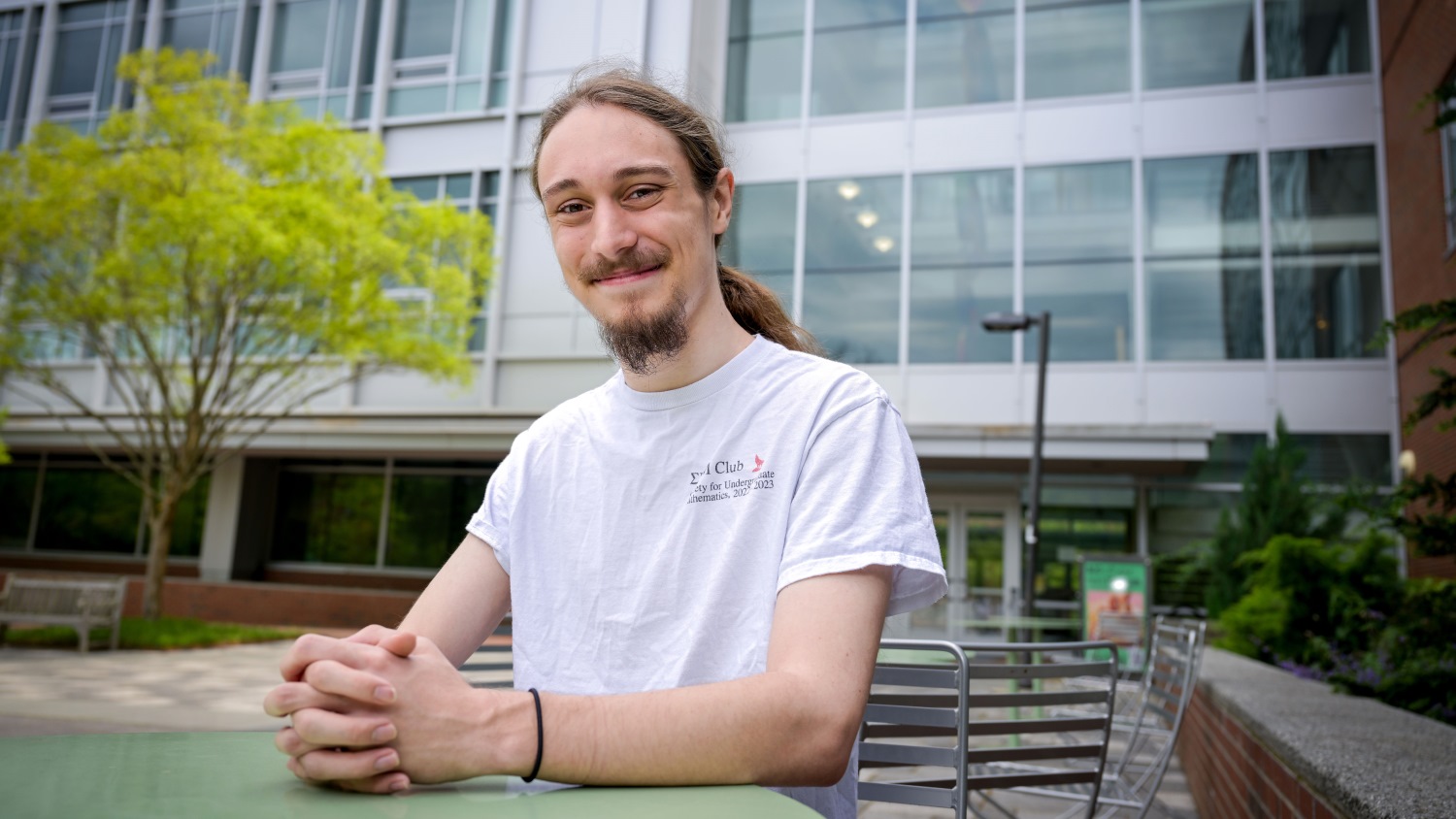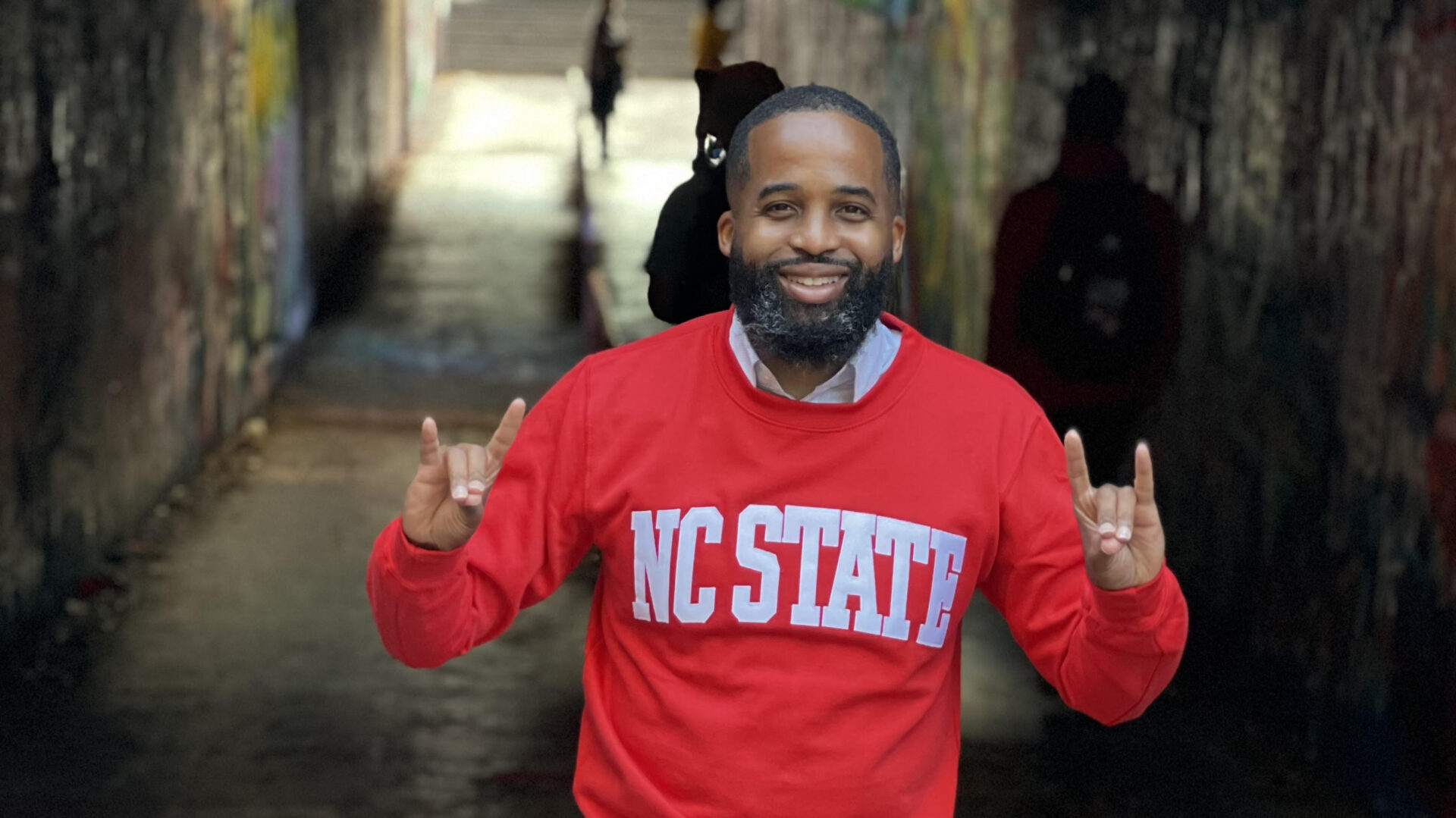“Dignity and Choice”: Women’s Center Survivor Fund Supports Students in Crisis
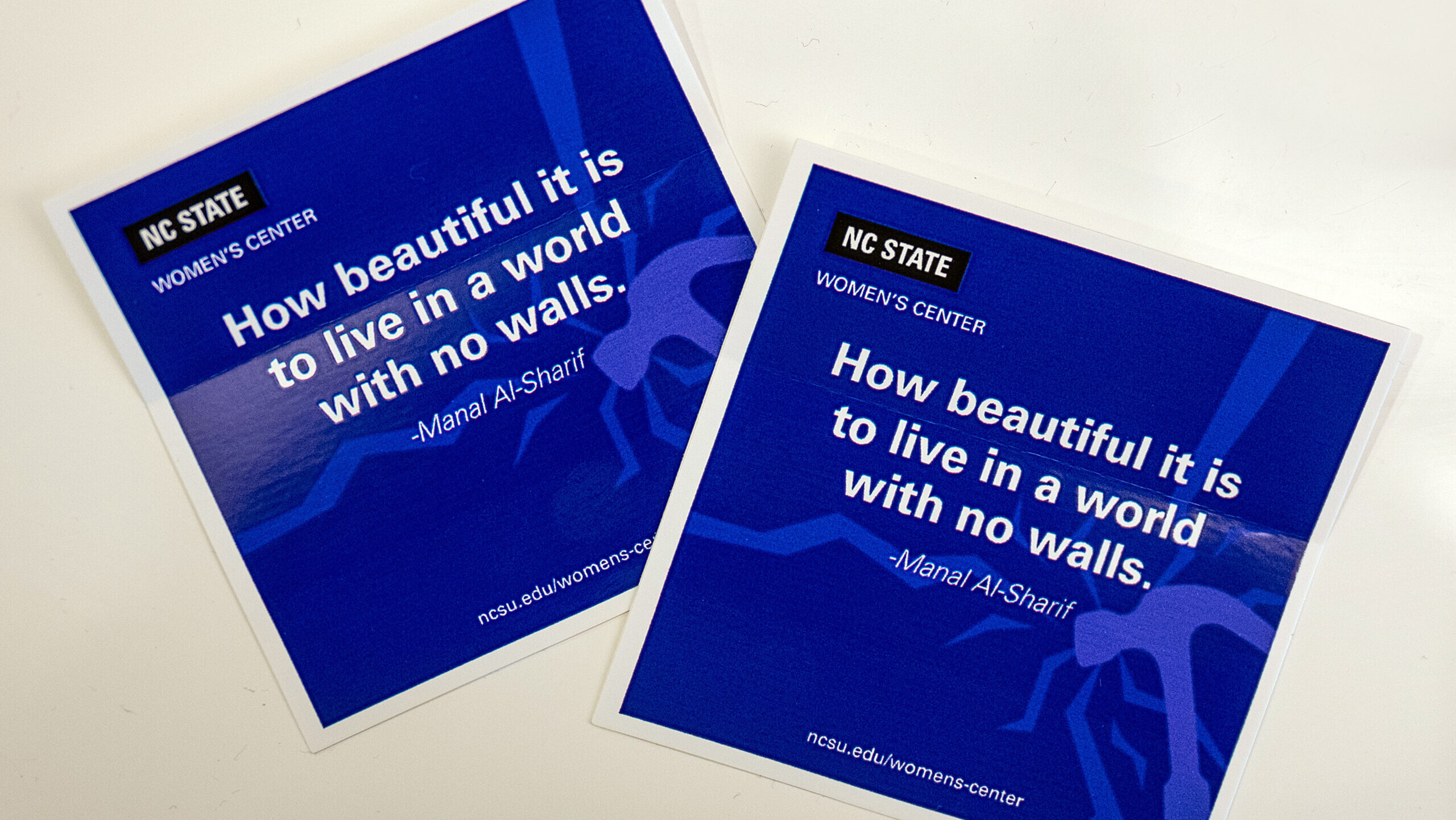
Connecting to support is critical for survivors of interpersonal violence, but when those survivors are college students, they may face additional, unique challenges. At NC State, this is not a path anyone has to walk alone.
The Women’s Center — one of the Office for Institutional Equity and Diversity’s four campus community centers — uses education, leadership development, advocacy and support services to examine and help students engage with issues of gender equity and social justice. In addition to programming and community activities, the center serves students of all gender identities who are survivors of interpersonal violence, which includes domestic or dating violence, sexual assault and stalking.
These survivors may face shame, disbelief, victim-blaming or minimization in the face of their experiences. The team at the Women’s Center helps affirm and connect student survivors to the resources needed to heal and recover.
For Delana Epps-Avery, associate director for interpersonal violence services at the Women’s Center, working with students at this level is an honor.
“I’ve been at NC State since November, though I’ve done this work for a long time, and just to be here and watch how dedicated the staff is and how everyone has a genuine concern about the wellbeing of students on campus, it’s been amazing. I’m always humbled by the opportunity to do this work,” she said.
While support may entail accompanying a student to court or the hospital or help with academic accommodations, it can also be financial, thanks to the Survivor Fund.
The Survivor Fund is the only fund on campus solely dedicated to survivors of interpersonal violence. The Women’s Center, a trusted partner on campus, works closely with Pack Essentials Hub and other entities to ensure students’ needs are met through every phase of recovery.
“I think the beauty of a space like the Women’s Center and our Survivor Support Services is our trained advocates understand how domestic and dating violence, sexual violence and stalking specifically impact the student population,” said Janine Kossen, director of the Women’s Center.
“We understand the intricacies of what it means to be a college student who’s struggling financially.”
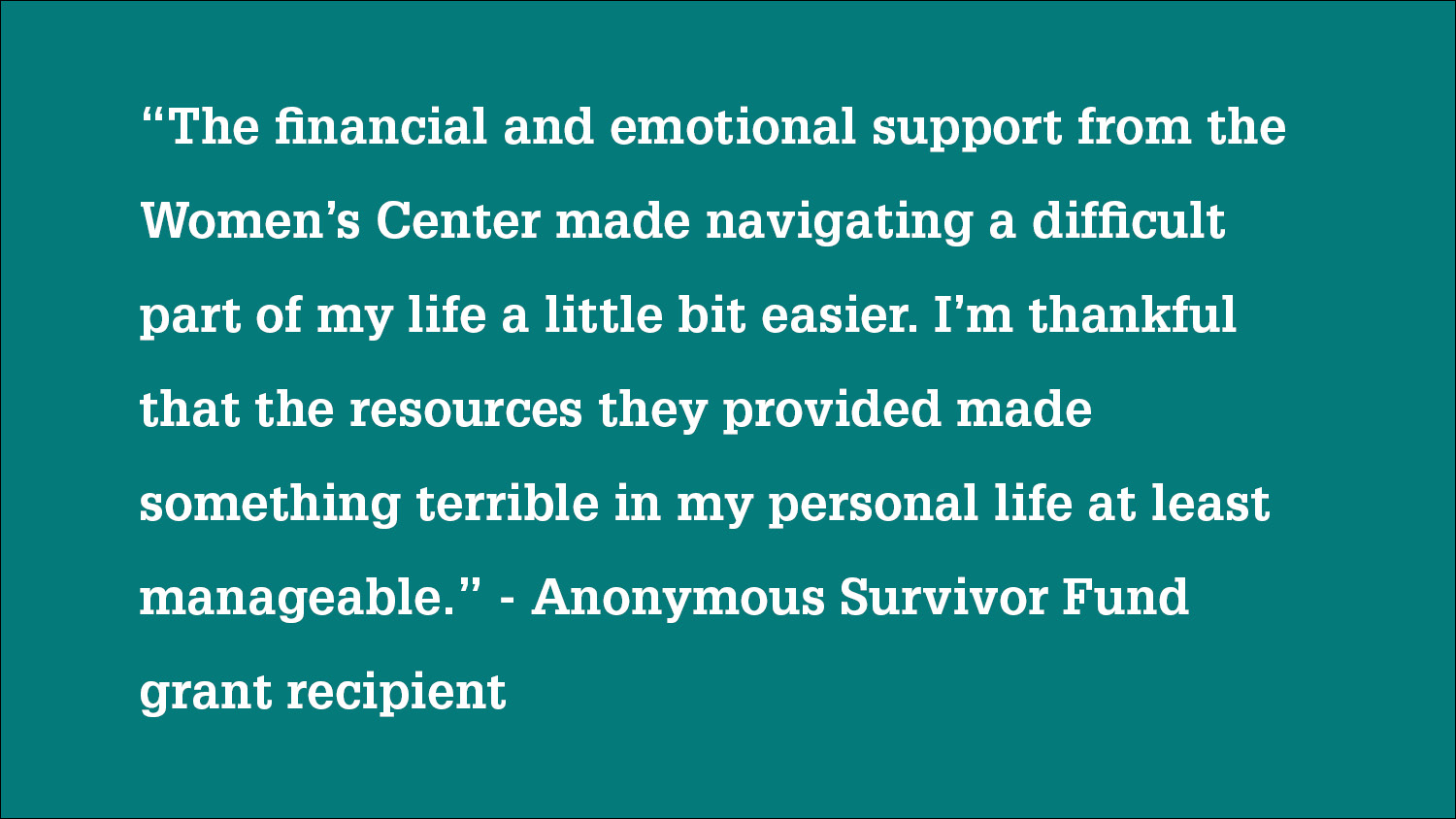
The center has assisted survivors in multiple ways, including financially, for more than 25 years. According to data from the last seven years, the Survivor Fund has distributed more than $60,000 to roughly 115 students. Roughly 80% of these awards have been disbursed since the start of the COVID-19 pandemic in 2020, as students experienced the financial strain of lost income.
“The need is high,” Kossen said, “and gifts of all sizes make a tremendous impact. A $25 gift can provide transportation to a rape crisis center. A $50 gift could cover co-pays for counseling services. These gifts really add up to make a huge difference in the healing and recovery process.”
In fact, the Survivor Fund does not receive any institutional resources or state dollars and relies entirely on donor generosity.
Referrals from peers and other campus partners, combined with the growing cost of living, has led to an increased need for Survivor Fund grants. Mental health counseling with off-campus providers has become the most common use for grants, as care can be expensive for student survivors. Some need to pay out-of-pocket instead of using insurance for safety reasons.
While many recipients choose to use their Survivor Fund grants for mental health, basic needs like food, and moving expenses, there are no restrictions — one of the fund’s defining features.
“It’s about dignity and choice,” Kossen said. “If we can take care of some of the stressors that are going on in somebody’s life, they can focus on getting through their academics, taking care of their family, graduating and doing amazing work in their field.”
Several years ago, a graduate student dealing with stalking was able to find some reassurance by using money from the Survivor Fund to install a security system at the home she shared with her child. The funds, as well as the support and advocacy from the Women’s Center, helped her navigate a divorce, graduate from NC State and secure a dream job in her field of study — just one of many success stories the fund helps make possible.
While Kossen and the interpersonal violence services team witness this impact firsthand, the data confirms the fund’s importance. Every student who received a Survivor Fund grant in the 2022-23 academic year remained in school, and the retention rate for 2021-22 is over 90%.
“Creating a trusting space in collaboration with the survivors I get to support is the greatest privilege of my professional life. There is a sense of empowerment I get to witness from survivors when they receive this critical funding,” said Carly Woolard, interpersonal violence response coordinator.
“One of my favorite parts of being an advocate is handing survivors their grant funds. It is a chance for me to remind them of their worth and dignity as a human being, and that they have the agency and autonomy to make the best choices for themselves in order to purchase the things they find supportive to their healing journey.”
This type of community does not only make a difference for retention. The Women’s Center team supported a number of students as undergraduates who then choose NC State for graduate school and continue their relationships with the center, showing how important these connections are.
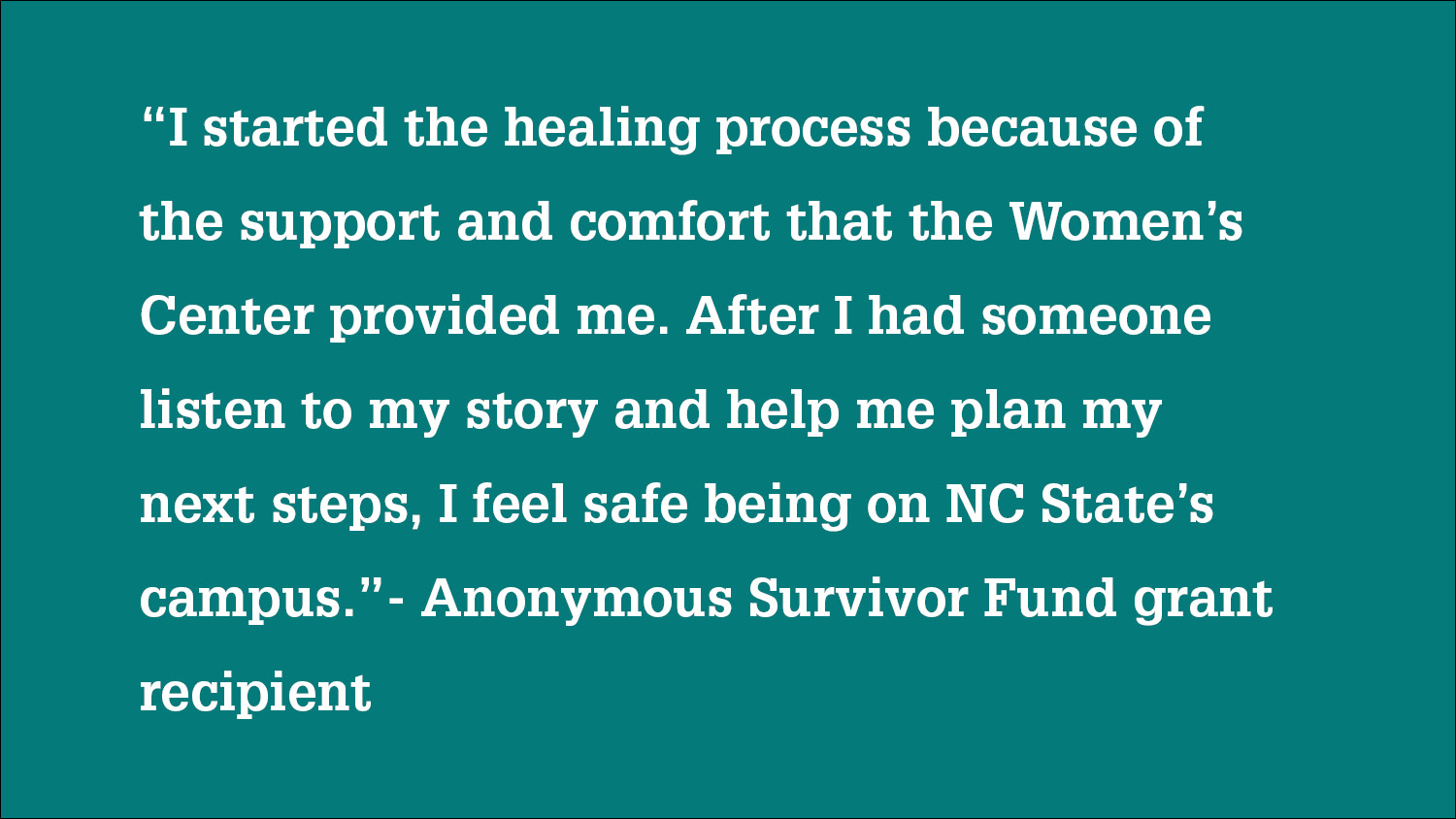
As the need for and impact of the Survivor Fund has grown, so has donor interest. Wolfpack Women in Philanthropy — a group of women who are committed to inspiring and engaging women to transform the culture of philanthropy at NC State through leadership and giving — has fostered a meaningful relationship with the Women’s Center, participating in site visits and celebrations. The group has raised the profile of the Survivor Fund through targeted fundraising appeals and advocacy.
“Wolfpack Women in Philanthropy has been phenomenal,” Kossen said. “We’ve been really grateful for their commitment and the continued focus on the Survivor Fund. We wouldn’t be able to provide the support we’ve been able to give without their generosity — not only financially, but also with their visibility, power and voices.”
Donor partnerships are critical for the fund’s long-term growth and sustainability. Currently, students are limited to a single application to the Survivor Fund, and for some of them, the grant limit of $500 may not be enough to make a substantial difference in the expenses they face, like medical bills, lost income to attend court hearings, or new laptops and phones to replace technologies that had to be left behind or were damaged by an abusive partner.
“With additional funding, we would love to remove those limits so a student could apply more than once or for more money,” Kossen said. “That’s the number-one limitation we face.”
Another area for growth would be assisting survivors in situations that require them to relocate. If the fund had additional resources, Kossen sees an opportunity to build out what she calls dignity kits: tangible items that ensure a student starting over can pick out furniture, kitchenware and other basics. This would allow survivors to direct their grants toward therapy and other services.
In the future, the Women’s Center would also like to have a greater presence on Centennial Campus and the College of Veterinary Medicine campus to better serve students where they are. Such expansion would likely mean more instances of disclosure and a greater need for Survivor Fund resources.
As advocates, Epps-Avery and Woolard are present during times of crisis, relationships built at the center often mean having the honor and privilege to celebrate the joys too, from returning to class and making good grades to graduation and post-graduation success — achievements that could have felt impossible to students experiencing violence and its obstacles.
With NC State Day of Giving approaching on March 20, there are numerous funds across campus for donors to support. Kossen offered words of encouragement to those who may be considering a gift to the Survivor Fund.
“Your gift is going straight to a survivor in crisis. That is the impact we see. It allows people to go on and heal and recover and stay in school,” she said.
- Categories:
